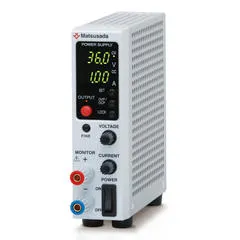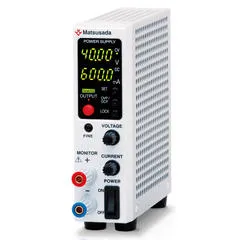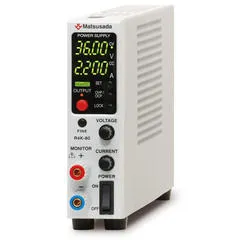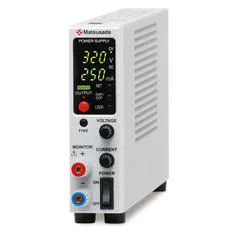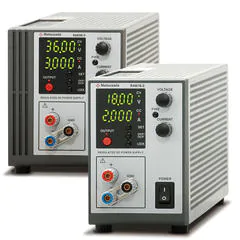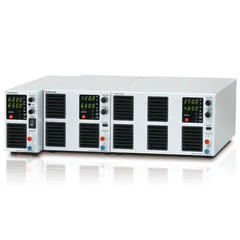Power supply plays an essential role in Electronics engineering areas. It serves as the source of power in a circuit, providing stable and reliable voltage and current for the connected devices. In most cases, electronic devices require specific voltage and current settings to perform optimally.
While there are various types of power supplies, such as power supply modules and rackmount power supplies, benchtop or benchtop power supplies remain a popular choice due to their versatility and space-saving.
In this blog post, we'll cover the basics of what a benchtop power supply is, how to use it properly, and what to look for when choosing a model.
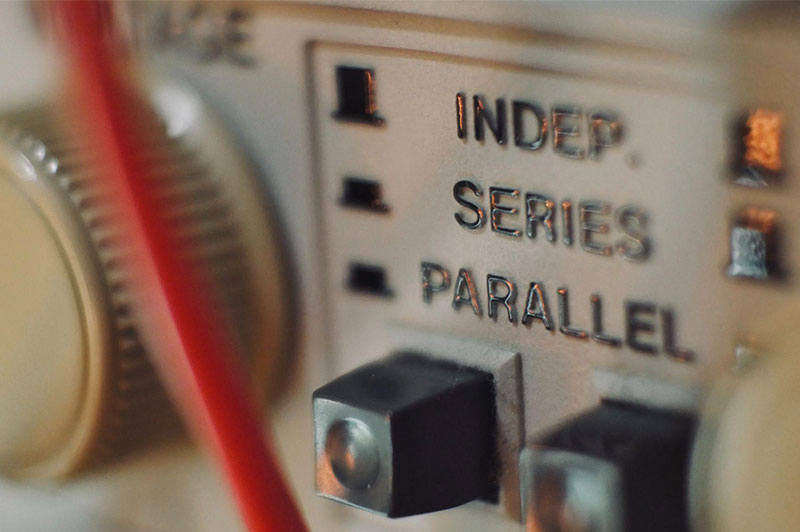
Types of Bench/Benchtop Power Supplies
Benchtop DC Power Supply
Also known simply as a bench power supply, this device is capable of providing a stable output voltage and current to electronic circuits and devices. What makes the benchtop DC power supply so useful is its versatility and ability to generate variable voltages and currents from a single source.
It's worth noting that there are two types of bench DC power supplies available: linear and switching. Linear power supplies are known for their precise and accurate output, whereas switching power supplies are more efficient and lighter in weight.
Ultimately, the choice between the two comes down to personal preference and the specific needs of the electronic project at hand. Regardless of the type, a benchtop DC power supply is an indispensable tool for powering and testing electronic circuits and devices with precision and reliability.
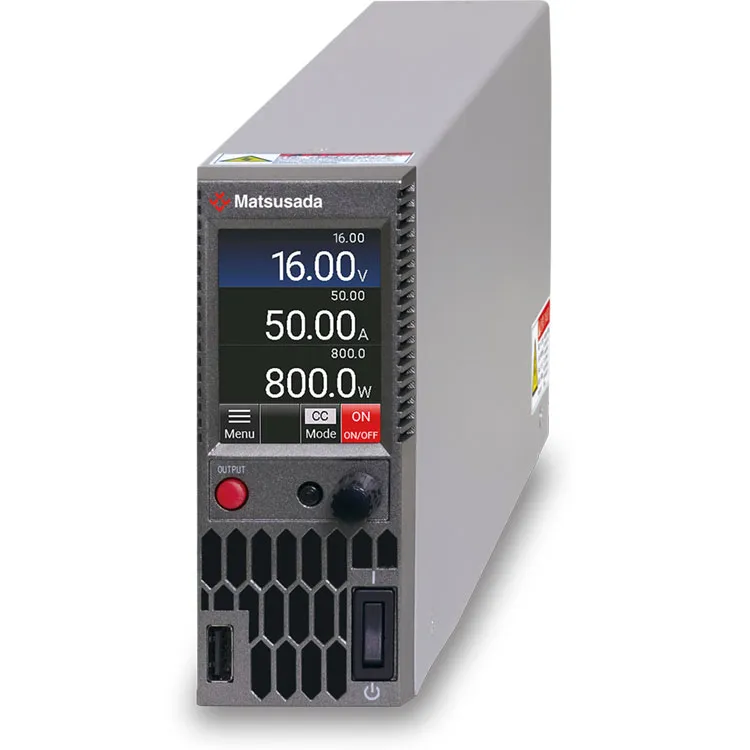
Benchtop AC Power Source
When it comes to testing electronic devices that run on AC power, having a reliable and efficient bench AC power source is essential. Unlike other power supplies, this type of devices is specifically designed to output AC voltage, making it an ideal choice for testing small appliances, AC adapters, and other similar devices.
Additionally, it's also useful for evaluating performance under different regional voltages and frequencies, allowing for greater accuracy when it comes to testing and troubleshooting. With its precision output and easy-to-use design, a benchtop AC power source is an invaluable tool for any electronics enthusiast or professional.
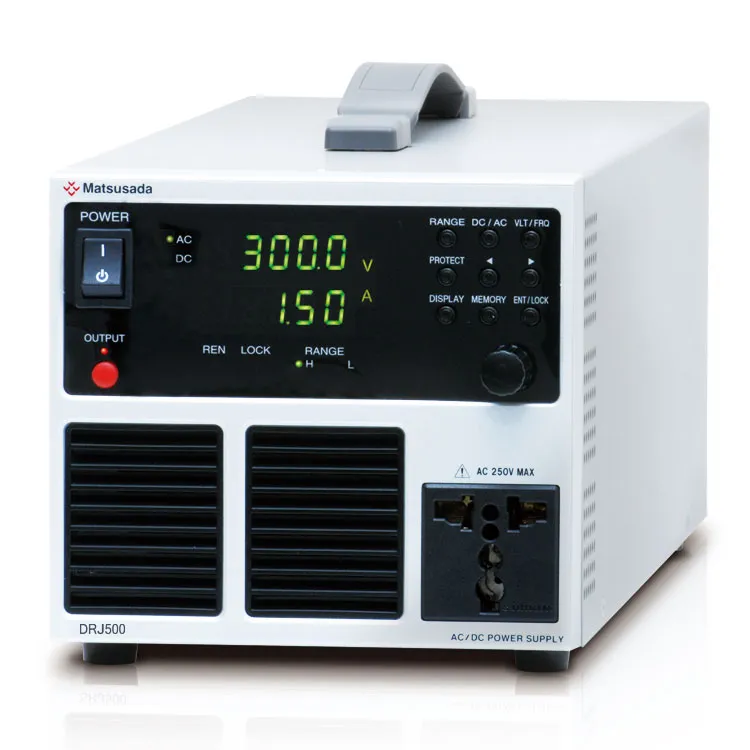
High-Voltage Benchtop Power Supply
A high-voltage benchtop power supply is an indispensable tool for those who work with electronics, especially when it comes to testing and troubleshooting high-voltage circuits. Applications for high-voltage power supplies include ion and various analyzers and detectors. These power supplies are capable of providing a stable and adjustable high-voltage output, usually from a few hundred volts all the way up to 30 kV.
High-voltage DC output power supply modules are critical components for high-precision applications such as Photomultiplier tubes, Mass Spectrometry, Electron beams, X-ray tube, and electrophoresis.
These power supplies come in two types: DC-DC converter and AC-DC type, and each product line boasts a small size, low noise, high reliability, and a wide range of outputs.
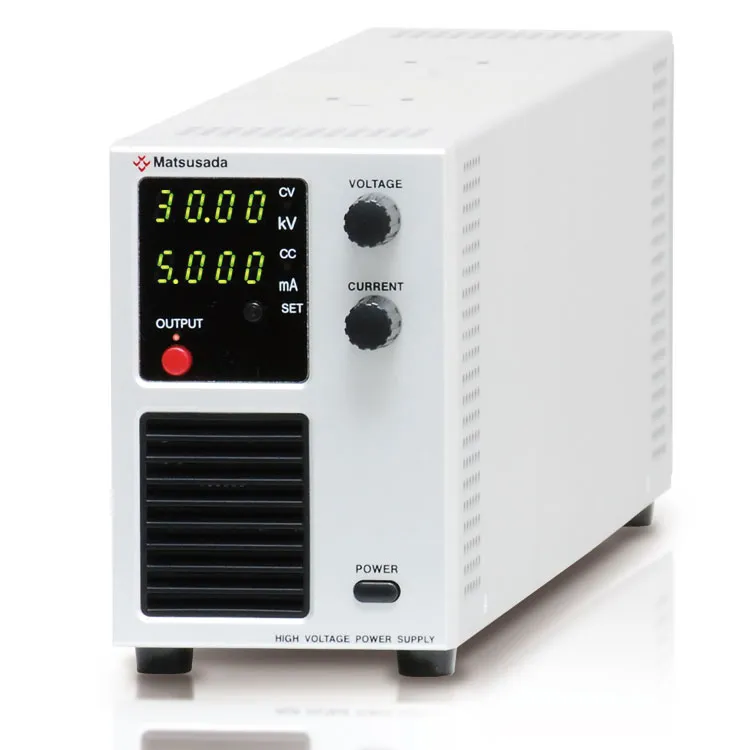
The proven high-voltage power supplies are versatile and meet the various demands of different industries, including semiconductor production equipment.
The importance of high-voltage power supplies cannot be understated in high-precision applications where quality and reliability are paramount.
Bipolar Benchtop Power Supply
A bipolar benchtop power supply is one of the many types of power supplies available in the market. A bipolar benchtop power supply is a high-performance and versatile device that can not only regulate voltage but also control current flow.
Thanks to its four-quadrant operation, it can act as a power supply and electronic load, providing both positive and negative current and voltage. These features make the bipolar benchtop power supply ideal for testing electronic devices that require dynamic performance, waveforms simulation, and unstable power supplies.
With its high-speed operation, it can precisely simulate various power conditions, such as cranking, surges, and dips.
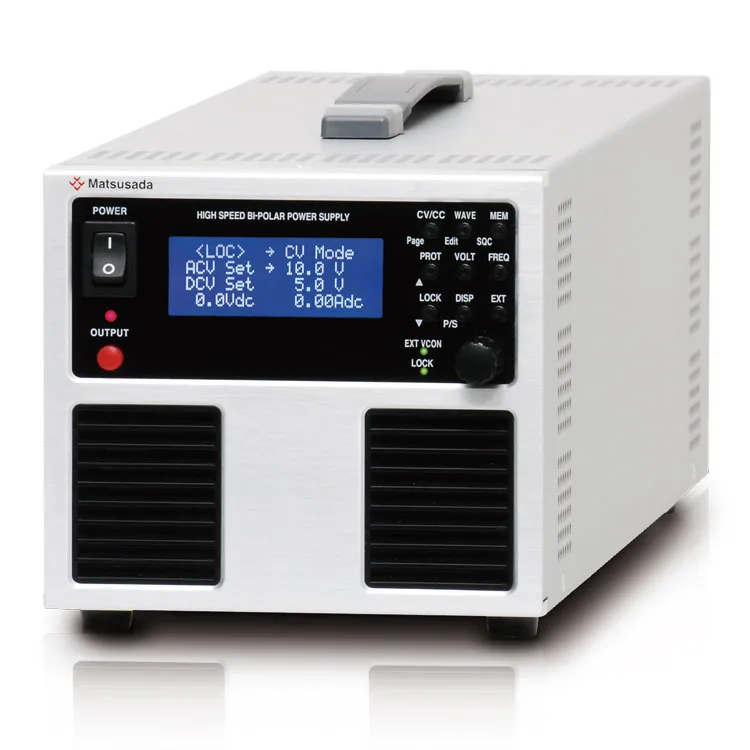
So, whether you are designing and testing power supplies or analyzing waveform responses, a bipolar benchtop power supply is an indispensable tool that can provide accurate and reliable results.
Benchtop Battery Cycle Tester (DC Power Supply and DC Electronic Load)
The Benchtop Battery Cycle Tester is a game-changer in the world of battery testing and evaluation. It is a tool to evaluate safety and test the degradation of performance due to repeated charging and discharging.
What's more impressive is its ability to evaluate battery degradation by repeatedly charging and discharging the battery. The tester is also highly compatible with various charge/discharge methods, including Constant Current (CC), Constant Voltage (CV), and Constant Power (CP).
Whether you need to test the capacity, charging and discharging current, or battery life cycle, a benchtop battery cycle tester can provide accurate and reliable results.
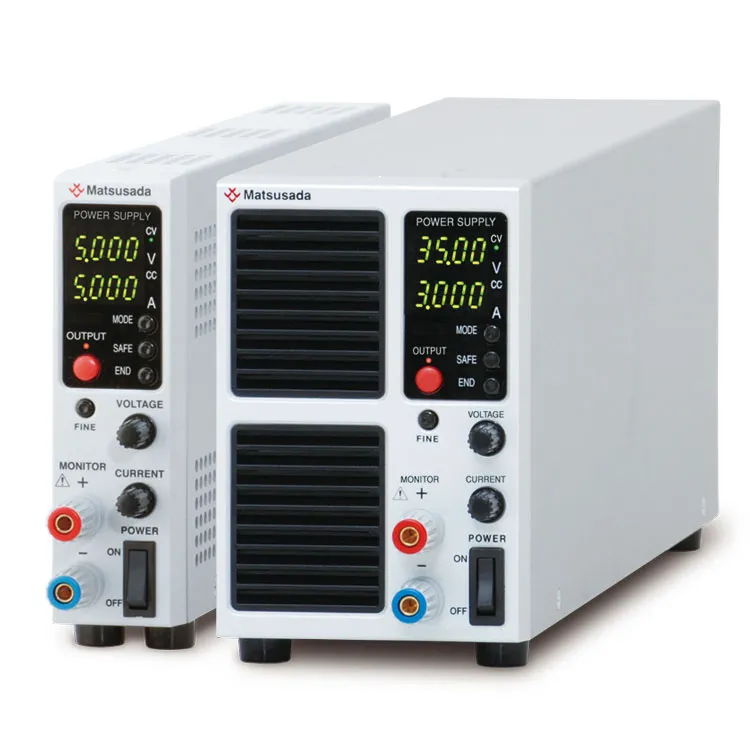
With adjustable voltage and current thresholds, protection circuits that offer protection against over-charge and over-discharge, and intuitive interfaces, these power supplies are ideal for R&D labs, manufacturing plants, Acceptance testing of batteries, safety and performance inspections of trade goods, and workshops.
Benchtop Electronic Load
Another type is the benchtop electronic load. These loads are indispensable tools for testing and verifying the performance of a power supply. They are designed to simulate the electrical load that a device under test (DUT) could draw and measure the DUT's response to this load.
Benchtop electronic loads come in both DC and AC versions, and different models can handle different power levels, ranging from a few to a few hundred watts. With their high accuracy and precision, benchtop electronic loads are essential equipment for any engineer or technician working with power supplies or devices under test (DUTs).
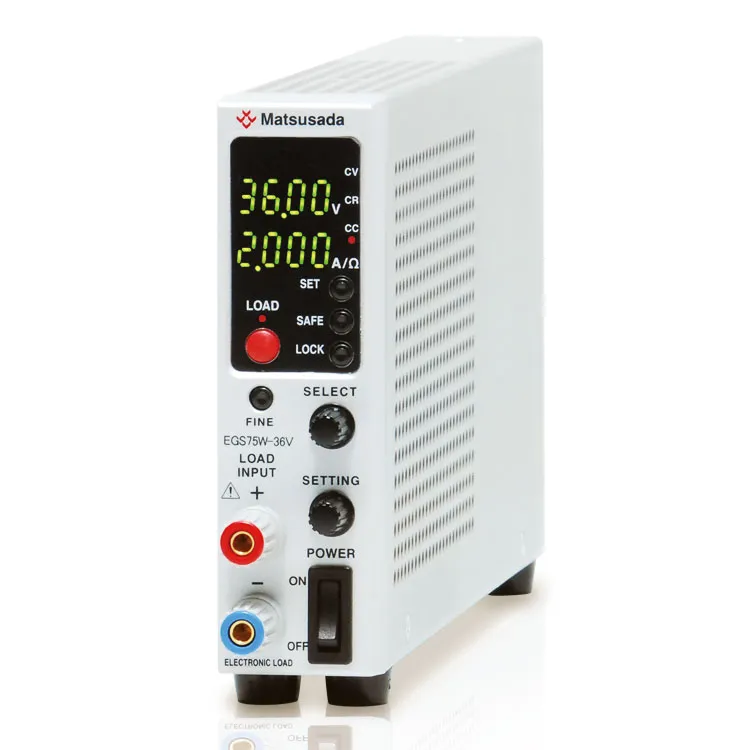
Selecting the Right Benchtop Power Supply for Professional Use
Voltage & Current Ranges
Voltage and current ranges are also key factors when selecting a benchtop power supply. Constant Voltage (CV) operation is common, so typical voltage and Maximum (peak) current must be considered. However, many electronic components have a defined voltage rating, and the current varies depending on the operating conditions.
Additionally, a low-voltage DC power supply can be used by switching both positive and negative polarity, but a high-voltage DC power supply outputs with a predetermined polarity, so care must be taken when selecting one.
If a power supply's voltage range doesn't match the requirements of the device under test, it could either overheat or fail to operate correctly. Likewise, the current range is critical since devices may demand more current than the power supply is capable of delivering.
Output Stability
Another crucial consideration is output stability. A power supply with unstable output voltage can cause erratic behavior in instruments, leading to inaccurate results and wasted time. Engineers, technicians, and researchers need power supplies that can provide a consistent and precise output voltage to ensure optimal performance of their equipment.
Moreover, in some cases, unstable output voltage may cause irreparable damage to sensitive devices. The speed of the power supply is a crucial factor in tracking load variations, especially when it comes to linear and switching power supplies. Linear power supplies are generally considered fast in terms of response time. The switching power supplies, on the other hand, rely on control speed to perform at an optimal level.
However, there are instances where the power of the power supply can mask any discrepancies in speed. Regardless of the type of power supply, getting the speed right is essential for maintaining efficiency and avoiding any potential issues with the load.
Size and Weight
Selecting the right benchtop power supply for professional use requires careful consideration of various factors, including size and weight. You'll want to ensure that the power supply is compact and lightweight enough to fit on your cramped workbench without taking up too much valuable workspace.
Meanwhile, it needs to be heavy enough to stay put and remain stable during use, as well as durable enough to withstand the rigors of frequent use in a professional setting. Your best bet is to look for power supplies that offer a good balance between portability and sturdiness, with features like a robust metal chassis and a streamlined design that minimizes excess bulk.
Remote Control Functions
Having a benchtop power supply with remote control options can greatly enhance professional work efficiency. This feature allows for precise and remote adjustment of voltage and current settings, eliminating the need for interruptions and uncomfortable reaches to physical devices.
Not only does this make work more efficient, but it also promotes a safer work environment. When choosing the appropriate benchtop power supply for your needs, it's crucial to consider the available remote control options and choose one that aligns with your specific preferences.
With analog and digital remotes readily available, the remote terminal can also be used for logging, adding a useful advantage to this sought-after feature.
Matsusada Precision's Benchtop Power Supplies
Matsusada's great lineup of benchtop power supplies is impressive If you are looking for reliable and top-quality power supplies to facilitate your workbench operations. Matsusada's high-performance power supplies include benchtop DC power supplies, benchtop high voltage power supplies, benchtop AC power sources, benchtop electronic load, benchtop bipolar power supplies, and benchtop battery cycle testers, among others.
And while they may be powerful, they are also compact - the 400 W output option is available in a small size of only 2.8 inches in width, perfect for a benchtop workspace. These DC power supplies are sure to meet and exceed your power needs.
Basics of Bench/Benchtop Power Supply
What is a Bench/Benchtop Power Supply?
When you're working on a project that requires a precise amount of DC power, a benchtop power supply can come in handy. Essentially a small power supply that's designed to sit on your workbench.
These devices are also known as lab power supplies, DC power supplies, and programmable power supplies. They're perfect for electronics for those who need access to a reliable and easy-to-use power source.
While there are several types of benchtop power supplies available--including ones with communication functions, multi-output types, and ones with various features--they're all designed to make your operations easier and more accurate.
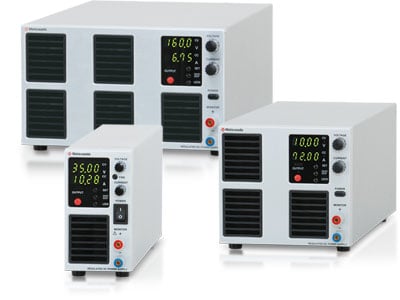
How does it work?
A benchtop power supply is a versatile piece of equipment that provides regulated power to electronic devices. It works by drawing an AC power line from the mains and filtering it to provide a constant DC output. The process involves several components, including a transformer, rectifier, capacitor, and voltage regulator.
For example, in a linear power supply, the transformer steps down the voltage to a manageable level, the rectifier converts the AC current to DC, the capacitor filters out any remaining noise, and the voltage regulator ensures a stable DC output. With the ability to adjust voltage and current levels and protect devices from over power, a benchtop power supply is an essential tool for automatic inspection systems, School training aid, etc.

Why is it important?
A benchtop power supply may not be the most glamorous piece of equipment in an electrical engineer's lab, but its importance cannot be overstated. Without one, testing and prototyping will not be possible in the first place.
Benchtop power supplies provide a reliable and stable source of voltage for testing and powering electronic circuits. They allow engineers to vary the voltage and current to components to test their limits, observe how they perform in different applications, and ensure they will function correctly in the final product.
Investing in a quality benchtop power supply may not seem like the flashiest purchase. Still, it can make a significant impact on the success and efficiency of electronic design and development.
Industrial Applications

Laboratory
A benchtop power supply is an essential tool in any laboratory. From testing electronic components to powering devices, a reliable and versatile power source is critical for successful experimentation. These essential devices provide a stable voltage and current output, allowing researchers to conduct accurate and precise measurements.

Test and Measurement (T&M)
Specifically designed for industrial applications, benchtop power supplies are an essential tool for T&M professionals. With features like adjustable voltage and current, automatic protection against overloading, and precision accuracy, these power supplies allow for precise calibration and testing of equipment. Additionally, they can also be operated with a remote control.

Research and Development (R&D)
When it comes to research and development (R&D), a reliable and efficient benchtop power supply can make all the difference. Industrial applications require power sources that can handle complex circuits and sensitive equipment while also delivering the precise voltage and current needed for experimentation and prototyping. A quality benchtop power supply is an essential tool for any R&D team, allowing them to focus on innovation rather than worrying about the reliability of their power source.

Design validation
When it comes to designing and building electronic circuits, having a reliable power source is essential. That's where a benchtop power supply comes in. A benchtop power supply is a tool used to provide a stable and adjustable DC voltage to power electronic devices. This versatile tool is widely used in the field of electronics design and validation.
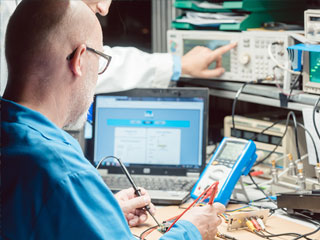
Reliability and quality testing
Quality testing is a critical aspect of any kind of circuit design, and a benchtop power supply is a valuable tool for achieving this. A benchtop power supply can provide reliable power to various circuits during testing, ensuring that components are operating under the correct conditions. The durability and strength of a product depend greatly on the quality of the components it uses, and a benchtop power supply can ensure that these critical components work correctly before the product is released to the market.
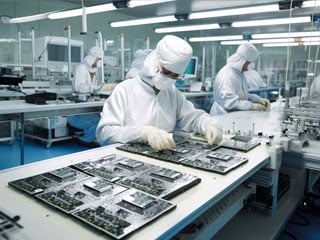
PCB assembly testing
For PCB assembly testing, having a dependable and reliable Benchtop Power Supply can make all the difference. With a Benchtop Power Supply, you can provide voltage and current to your circuit boards for testing op-amps, transistors, and other electronic components. Thanks to its portability and precision, the Benchtop Power Supply can help to speed up the testing and assembly process, ensuring that your electronic circuit work flawlessly every time.

Bench testing
Bench testing is a crucial stage in the process of creating or repairing electronic devices. And to make sure that each component is working seamlessly, a reliable bench power supply is necessary. With a benchtop power supply, you can have peace of mind knowing that each component is performing as it should.
Frequently Asked Questions
Why should we use a benchtop power supply?
A benchtop power supply is an indispensable tool for anyone with electronic components. It provides a stable output of power that is crucial for testing and debugging circuits. Using a benchtop power supply helps you avoid overpowering circuits and potentially damaging them.
Additionally, it allows you to adjust the voltage and current output with precision, ensuring that all components are receiving exactly what they need to function properly.
Is a benchtop power supply AC or DC?
A benchtop power supply is commonly referred to as a benchtop power supply that outputs direct current. Benchtop power supplies with AC output are called benchtop AC power sources for identification. Benchtop AC power sources include products that can output DC as well as AC.
AC vs DCWhat can I do with a benchtop power supply?
A benchtop power supply is a crucial tool for any electronics enthusiast or professional. With this device, you can provide a precise and stable DC voltage to power up your gadgets and devices without the hassle of replacing batteries every now and then.
You can use a benchtop power supply for a variety of purposes, such as testing and troubleshooting electronics, powering up different circuits and projects, and even charging batteries. In addition, some benchtop power supplies come with features like overvoltage protection, current limiting, short-circuit protection, and adjustable output voltage and current, which makes them even more versatile and reliable.
If you're working on experimenting with new ideas, a benchtop power supply is definitely a must-have tool in your arsenal.
What is CV and CC?
CV/CC power supply is a versatile tool that can operate in both constant voltage (CV) and constant current (CC) modes. In CV mode, the power supply maintains a consistent output voltage, despite variations in the circuit's current demand. Meanwhile, in CC mode, the power supply delivers a steady stream of current, regardless of changes in the load's resistance.
The Benchtop CV/CC power supply is perfect for those who require a constant voltage or constant current source for their experiments or projects. It can also provide a means of protection against overloading, which is essential for those who want to ensure the safety of their equipment.
With a Benchtop CV/CC power supply, you can rest assured that you will have reliable and consistent power for your needs.
CV vs CCWhat is a Series operation/Parallel operation?
Series and parallel operation supplement power by connecting two or more power supplies when the output power of a single unit is insufficient. In series operation, the output voltage can be boosted by connecting the positive of the first unit's output to the negative of the second unit's output.
The number of units that can be connected is limited by the combined voltage and isolation voltage. In parallel operation, the positive and negative outputs can be connected to each other to make the current booster.
What is a programmable power supply?
While selecting the right benchtop power supply for professional use, programmable/variable functions are a must-have feature. These functions allow you to fine-tune your power supply and make sure that you are getting the exact voltage, current, and power that you need for your particular project.
Additionally, when it comes to selecting the right power supply and monitors for your device, another key factor to consider is the required settings for the power supply. This will ensure that your device receives the right amount of power and operates efficiently.
It is also important to consider the number of digits of the monitor value. This will give you an accurate reading of your device's performance and help you make changes as needed. By taking the time to clarify these requirements during the selection process, you can ensure that your device runs smoothly and reliably.




